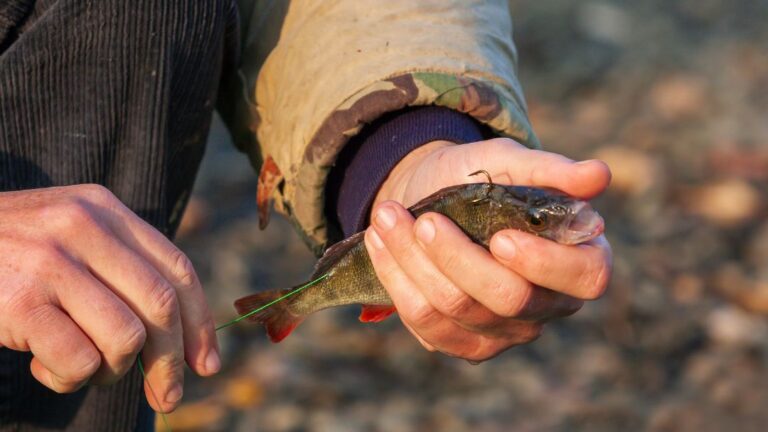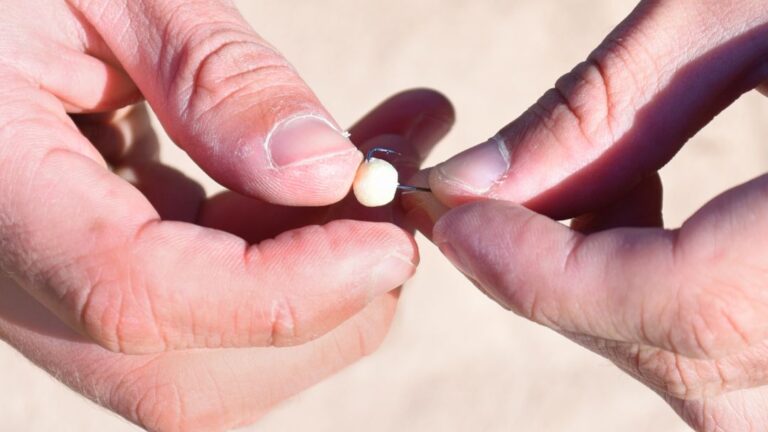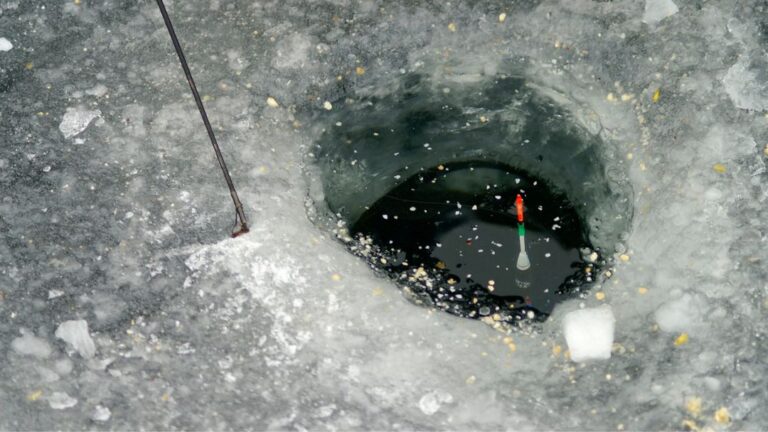NJ Saltwater Fishing Regulations – New Jersey: You Must Know!
The NJ Saltwater Fishing Regulations for New Jersey can be found online and provide information on specific guidelines and restrictions for fishing in saltwater areas. New Jersey is known for its abundant saltwater fishing opportunities, attracting anglers from near and far.
Whether you are a seasoned angler or a novice, it is important to be aware of the fishing regulations set by the state. These regulations ensure the sustainability of fish populations and protect the ecosystem.
By following these guidelines, anglers can enjoy their fishing experience while also contributing to conservation efforts.
In order to stay compliant, it is crucial to stay up-to-date with the current NJ Saltwater Fishing Regulations. We will discuss the various regulations and restrictions that anglers should be aware of.
Understanding NJ Saltwater Fishing Regulations
Saltwater fishing in New Jersey is a popular pastime for anglers of all skill levels. However, before you cast your line, it is important to have a clear understanding of the fishing regulations in the state.
By familiarizing yourself with these regulations, you can ensure that you are fishing in compliance with the law and promoting the sustainability of fish populations.
Overview Of NJ Saltwater Fishing Regulations
The New Jersey Department of Environmental Protection (NJDEP) enforces regulations that govern saltwater fishing in the state. These regulations are designed to ensure the long-term health and abundance of saltwater fish populations, as well as to protect the marine environment.
Understanding these regulations is vital to avoid any legal issues and to contribute to a sustainable fishing community.
Importance Of Understanding And Following Regulations
It is crucial for anglers to understand and follow the fishing regulations in order to protect marine ecosystems and preserve fish populations.
By adhering to these regulations, you are actively participating in the conservation efforts that promote the sustainability of saltwater fish.
Moreover, understanding the regulations helps to maintain the balance between recreational fishing and commercial fishing activities, ensuring fair and equitable opportunities for all anglers.
Key Regulations To Know For Saltwater Fishing In NJ
When it comes to saltwater fishing in New Jersey, there are several key regulations that every angler should be aware of. These regulations include:
- Size Limits: NJDEP sets minimum size limits for certain fish species to protect juveniles and allow the fish to reach reproductive age. It is important to measure your catch and release undersized fish to maintain healthy fish populations.
- Bag Limits: Bag limits specify the maximum number of fish that an angler is permitted to keep in a single day or trip. These limits vary depending on the species and are in place to prevent overfishing.
- Seasons and Open/Closed Areas: NJDEP designates specific seasons and areas where fishing is permitted or restricted for certain species. This helps to protect spawning grounds and ensure the sustainability of fish populations.
- Prohibited Species: There are certain species that are protected and must not be targeted or retained. It is crucial to familiarize yourself with the list of prohibited species to avoid unintentional violations.
By following these key regulations, anglers can contribute to the conservation of saltwater fish populations and enjoy sustainable fishing experiences in New Jersey.

Fishing License Requirements In NJ
If you’re an avid angler planning to cast your line in the saltwater fishing grounds of New Jersey, it’s essential to familiarize yourself with the fishing license requirements in the state.
Understanding these regulations will help ensure that you are in compliance with the law and can enjoy your fishing experience to the fullest.
Obtaining A Fishing License In NJ
Obtaining a fishing license in New Jersey is a straightforward process. You have several options to choose from, allowing you to select the method that is most convenient for you.
Here are the steps to follow:
- Visit the New Jersey Division of Fish and Wildlife website to apply online.
- Contact your local licensing agent, such as a bait and tackle shop, to purchase a license in person.
Prior to purchasing your fishing license, it’s essential to gather the necessary documents and information to streamline the application process. You will typically need to provide proof of identity and residency, such as a driver’s license or utility bill.
It’s always a good idea to check the specific requirements and fees on the official website or with your local licensing agent before applying for a fishing license in NJ.
Different Types Of Fishing Licenses Available
New Jersey offers different types of fishing licenses to accommodate the varying needs of anglers. The types of licenses available include:
- Resident fishing license: This license is available to individuals who are New Jersey residents and is valid for one year from the date of purchase.
- Non-resident fishing license: Visitors from out of state can purchase this license, which allows them to fish in New Jersey’s saltwater and freshwater areas.
- Senior fishing license: This license is specifically designed for senior citizens aged 70 and older who are New Jersey residents. It provides them with unlimited fishing privileges.
- 7-day vacation fishing license: If you’re planning a short fishing trip, the 7-day vacation fishing license is an excellent option. It allows both residents and non-residents to enjoy fishing for a limited period of time.
It’s important to note that various additional endorsements and permits may be required depending on the specific fishing activities and locations you plan to engage in.
For example, if you’re interested in catching striped bass or bluefish, an additional permit may be necessary.
Make sure to review the official regulations or consult with a licensing agent to ensure you have all the necessary permits before heading out to fish.
Who Needs A Fishing License In NJ
Anyone aged 16 and above who wants to fish recreationally in New Jersey’s saltwater areas needs to possess a valid fishing license unless they fall into one of the following exempt categories:
- Individuals under 16 years of age
- Persons fishing on a charter boat, party boat, or rental boat that holds a valid boat license
- Active members of the United States Armed Forces on leave or furlough
- New Jersey residents 70 years of age or older
It’s important to emphasize that without a valid fishing license or qualifying exemption, individuals may face fines or penalties for fishing in New Jersey’s saltwater areas.
Compliance with the fishing license requirements helps protect fish populations and ensures a sustainable fishing environment for all anglers.
Protected Species And Catch Limits
When it comes to saltwater fishing in New Jersey, it’s important to be well-informed about the regulations in place. One particular aspect that every angler should be familiar with is the protection of certain species and the catch limits associated with them.
These regulations are in place to preserve the delicate ecosystem and ensure sustainable fishing practices.
Endangered Or Protected Species In NJ Waters
New Jersey is home to a diverse range of marine life, some of which are endangered or protected species. It is crucial for anglers to be aware of these species and take the necessary actions to avoid harming or disturbing them.
The following table provides a summary of some of the endangered or protected species found in New Jersey waters:
| Species | Status |
|---|---|
| Atlantic Sturgeon | Endangered |
| Loggerhead Sea Turtle | Threatened |
| Shortnose Sturgeon | Endangered |
| Atlantic Hawksbill Sea Turtle | Endangered |
Regulations For Fishing-Specific Species
Each species of fish in New Jersey may have its own set of regulations regarding fishing methods, seasons, and minimum sizes. It is crucial for anglers to be familiar with these specific regulations to avoid any violations.
Here are some examples of the regulations for fishing specific species:
- Striped Bass: The minimum size for striped bass is 28 inches, with a daily bag limit of 1 fish per angler.
- Bluefish: Anglers are allowed to keep up to 3 bluefish per day, with a minimum size of 12 inches.
- Tautog (Blackfish): The minimum size for tautog is 15 inches, with a daily limit of 1 fish from November 16 to February 28, and 3 fish from March 1 to November 15.
- Summer Flounder (Fluke): The minimum size for summer flounder is 18 inches, with a daily limit of 3 fish per angler.
Catch Limits And Size Restrictions
In addition to specific regulations for certain species, New Jersey also imposes catch limits and size restrictions to ensure sustainable fishing practices. These measures help maintain healthy fish populations and protect the overall balance of the marine ecosystem.
Anglers are advised to stay updated on the most current catch limits and size restrictions, as they may vary depending on the species and location.
By adhering to these regulations and being mindful of the protected species and catch limits, anglers can enjoy the thrill of saltwater fishing in New Jersey while contributing to the preservation of the state’s rich marine biodiversity.
Seasonal Fishing In NJ
New Jersey boasts a diverse range of saltwater fishing opportunities throughout the year. With each season presenting its own unique offerings and challenges, it’s essential for anglers to stay informed about the different fishing seasons in NJ, the best times to target specific species, and the regulations in place for each season.
This comprehensive guide will provide you with all the information you need to make the most of your saltwater fishing adventures in the Garden State.
Overview Of Different Fishing Seasons In NJ
Fishing seasons in New Jersey are dictated by various factors, including water temperature, fish migration patterns, and environmental conditions. Understanding these seasonal variations is crucial for planning successful fishing trips.
The fishing seasons in NJ can generally be categorized as follows:
- Spring: The spring season, typically spanning from March to May, signifies the start of the fishing season in New Jersey. It is an exciting time for anglers, as various species such as striped bass, black drum, flounder, and weakfish begin their migration back to NJ waters. As the water warms up, these fish become more active and provide excellent opportunities for anglers to test their skills.
- Summer: Summer is a prime time for saltwater fishing in NJ. From June to August, the waters off the coast of the Garden State teem with a wide variety of fish species, including bluefish, summer flounder (fluke), sea bass, and tautog. The warm waters attract these species, making it an ideal time to enjoy angling adventures in the open ocean, around reefs, and at the many fishing spots along the coastline.
- Fall: Fall is a favorite season for many anglers in New Jersey. From September to November, the cooling water temperatures trigger the migration of baitfish, which attracts predatory species like striped bass, bluefish, weakfish, and false albacore. Fall offers superb surf fishing opportunities, as these species move closer to the shoreline in search of food. Additionally, black drum and tautog remain in NJ waters during this season, providing further angling opportunities.
- Winter: Although the winter months of December to February can pose challenges for anglers due to colder temperatures, there are still opportunities for productive fishing in New Jersey. During this time, winter flounder (blackback) are the main target species, as they inhabit the deeper waters and provide anglers with a chance to test their skills in braving the elements.
Best Times To Fish For Specific Species
To maximize your chances of a successful catch, it’s essential to be aware of the best times to target specific species. Here are some guidelines to keep in mind:
| Species | Best Time to Fish |
|---|---|
| Striped Bass | Spring and fall, during their migration periods |
| Bluefish | Summer and fall, particularly in cooler water temperatures |
| Flounder (Summer Flounder/Fluke) | Summer months, especially during tidal changes |
| Tautog | Fall and winter, when they are most active |
Regulations For Fishing During Different Seasons
Fishing regulations in New Jersey are put in place to ensure sustainable fish populations and the preservation of the marine ecosystem. Understanding and adhering to these regulations is critical for anglers.
Here’s an overview of the key regulations for fishing during different seasons:
- Spring Season Regulations: During the spring season, there may be specific size and bag limits for each species you target. It’s important to familiarize yourself with these regulations through the New Jersey Department of Environmental Protection (NJDEP) to ensure compliance.
- Summer Season Regulations: Similar to the spring season, summer fishing may have specific size and bag limits for different species. Additionally, there may be specific restrictions on certain areas or fishing techniques, such as fish sanctuaries or hook types. Always check for updates from NJDEP to stay informed.
- Fall Season Regulations: Fall fishing regulations often include size and bag limits, as well as restrictions on fishing methods. Carefully review the NJDEP guidelines to ensure you comply with the regulations for the species you plan to target during the fall season.
- Winter Season Regulations: Regulations for winter fishing may involve size limits, bag limits, and specific closures for certain species. It’s essential to stay updated on the NJDEP guidelines and consult the most recent information before venturing out during the winter season.
By familiarizing yourself with the fishing seasons, the best times to target specific species, and the regulations in place for each season, you can enjoy a fulfilling and responsible fishing experience in the diverse saltwater habitats of New Jersey.
Popular Fishing Spots In NJ
When it comes to saltwater fishing, New Jersey offers a wealth of opportunities. With its vast coastline stretching over 130 miles, the Garden State provides anglers with a variety of popular fishing spots.
Whether you’re a beginner or a seasoned angler, these top fishing spots along the NJ coast are sure to satisfy your appetite for adventure.
Top Fishing Spots Along The NJ Coast
New Jersey boasts several renowned fishing locations along its picturesque coast. Here are some of the most popular spots that are frequented by anglers:
1. Island Beach State Park:
Located on the barrier island between Barnegat Bay and the Atlantic Ocean, Island Beach State Park is a paradise for surf fishing enthusiasts.
Its pristine beaches attract fishing enthusiasts looking to catch striped bass, bluefish, fluke, and even winter flounder during the appropriate season.
The park also offers exceptional fishing infrastructure, including jetties and piers, making it a convenient choice for anglers of all skill levels.
2. Sandy Hook:
Situated at the northern tip of the Jersey Shore, Sandy Hook is a renowned fishing destination offering endless opportunities.
With its breathtaking views of the Atlantic Ocean, anglers can expect to catch bluefish, fluke, striped bass, and even weakfish during certain times of the year.
Whether you prefer surf fishing, pier fishing, or even casting from a boat, Sandy Hook has it all.
3. Cape May:
Cape May, located at the southernmost point of New Jersey, is a haven for saltwater anglers. The area around Cape May features a diverse ecosystem that attracts various fish species, including striped bass, flounder, weakfish, and black drum.
Whether you choose to explore the Cape May Canal, the jetties, or the surrounding bays, you won’t be disappointed by the fishing opportunities this charming town has to offer.
Best Locations For Different Types Of Fishing
Each fishing spot along the NJ coast offers its unique fishing experience. Here’s a breakdown of the best locations for different types of fishing:
| Type of Fishing | Best Locations |
|---|---|
| Surf Fishing | Island Beach State Park, Sandy Hook |
| Pier Fishing | Sandy Hook, Atlantic City, Seaside Heights |
| Boat Fishing | Barnegat Bay, Raritan Bay, Delaware Bay |
| Kayak Fishing | Shrewsbury River, Barnegat Bay |
Tips For Fishing In Popular Spots
While these popular fishing spots guarantee a thrilling adventure, it’s essential to keep a few tips in mind to make the most of your fishing experience:
- Check the local fishing regulations to ensure you are compliant with size and bag limits.
- Research the best time of year and time of day for the targeted species you wish to catch.
- Bring a variety of bait and lures to increase your chances of success.
- Pay attention to tide charts and understand how the tides can impact fish feeding patterns.
- Consider joining a local fishing forum or speaking with experienced anglers to gather valuable insights and tips specific to the area.
By following these tips and exploring the different fishing spots along the NJ coast, you’ll be on your way to an unforgettable saltwater fishing experience.
Conclusion
Overall, it is crucial for New Jersey saltwater anglers to stay informed about the state’s fishing regulations to ensure a sustainable and enjoyable fishing experience.
By adhering to these guidelines, you can not only comply with the law but also protect the marine ecosystem and preserve the fish populations for future generations.
Stay updated with the latest regulations and keep exploring the abundant and diverse marine life that New Jersey has to offer. Happy fishing!






